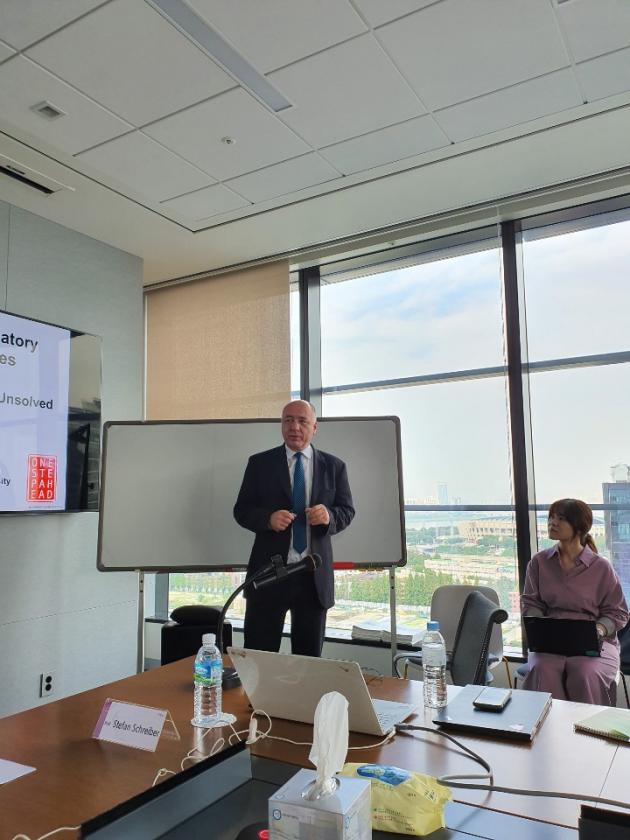Takeda's Kynteles (Ingredient: Vedolizumab) is attempting a paradigm shift in the treatment of inflammatory bowel disease (IBD) with mucosa healing effect, the company said Thursday.

"For the patient to continue with their daily lives, it is important to keep the institutional period as long as possible until the symptoms of IBD sink below a certain level," said Professor Stefan Schreiber at the University of Kiel said in a news conference Thursday.
Representative IBD, ulcerative colitis (UC) and Crohn's disease (CD) cause intestinal inflammation to improve and recur, causing severe abdominal pain and diarrhea that make daily life impossible.
Hospitals have so far focused on maintaining clinical remission with improved mucosal inflammation and symptoms. However, 60 percent of patients with UC experience recurrence when they discontinue treatment during remission, and CD patients suffer from complications due to persistent bowel damage, even if there are no symptoms.
For these reasons, the goal of treating UC and CD is to improve the quality of patients’ life by improving the symptoms and inflammation of the mucous membranes, inducing clinical remission and maintaining remission for as long as possible.
"Until now, the medical community has been focusing on clinical remission and steroid-free remission. However, there is a growing voice in recent years to target histologic remissions, such as mucosal healing or even transmural healing," Schreiber said.
Kynteles, which selectively acts only on the intestine, is attracting attention as a typical biological product that has a powerful therapeutic effect on mucosa healing, he added.
During his presentation, Professor Schreiber shared a cohort study of patients 10 years after diagnosis, which showed that half of CD and UC patients continued to develop, relapse, or worsen despite treatment. ,
In another cohort study, the CD has been reported to cause a significant number of patients undergoing stenosis or penetrating disease over time, even if treated primarily for the disappearance of symptoms.
However, Kynteles has recently succeeded in presenting mucosa healing and transmural healing for the first time in clinical studies related to IBD.
"The VARSITY study showed a significant difference in remission rates between Kynteles and Humira from the beginning of treatment (week 6) and up to 52 weeks," Schreiber said. "Kynteles also showed no adverse effects and had better control of the disease and lower infection rates than the placebo group."
Schreiber stressed that the primary goal of IBD research should include intestinal mucosa healing.
"Even at the moment, over 50 percent of patients experience relapses, even with strong treatments," he said. "Comparative research and biomarker strategies are needed between the available therapies to address the efficacy of the treatment and the direction of drug choice."
Also, as a result of genetic analysis, there are significant differences between Westerners and Asians IBD patients, Schreiber added.
"Therefore there is a need for new studies to see if there may also be differences in the effectiveness of the treatments," Schreiber said. "Takeda will soon announce such results."
Takeda Pharmaceutical Korea noted that due to the low proportion of Koreans in the Kynteles global clinical study, the company is researching to verify the effect of the drug on Koreans and plans to announce the results soon.
"According to the recent data released at various conferences, there was no significant difference with the real world data released in the past," a company official said.

